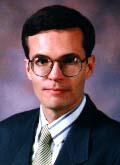
Rodney E. Tyson
rtyson@ausharjah.edu
American
University of Sharjah
English Department,
PO Box 26666
Sharjah, United Arab
Emirates
Phone: 971-6-515-2709
Fax: 971-6-515-2570

American
University of Sharjah
English Department,
PO Box 26666
Sharjah, United Arab
Emirates
Phone: 971-6-515-2709
Fax: 971-6-515-2570
Education
Associate Professor, American University of Sharjah, United Arab Emirates, Department of English & Translation Studies, MA TESOL Program, August 2001-Present Assistant/Associate Professor, Daejin University, Korea, Department of English Language & Literature, Graduate School of Education, 1997-2001 Assistant Professor, Ewha Woman's University, Korea, Department of English Language & Literature, Graduate Program in Area Studies, 1995-1997 Full-time Instructor, Hong Ik University, Korea, Department of English Language & Literature, 1994-1995 Graduate Associate in Teaching/Adjunct Instructor, University of Arizona, Center for English as a Second Language, 1991-1994 Full-time Instructor, Hong Ik University, Korea, Department of English Education, 1985-1990
Peer feedback in academic writing. In P. Kittidhaworn, K. Boonyaprakorb, & R. Marshall (Eds.), Selected Presentation Summaries from the 24th Annual Thailand TESOL International Conference. 2004.
Peer review and sense of community in academic writing. In A. Pulverness (Ed.), IATEFL 2003 Brighton Conference Selections. 2004.
A successful mixture of alphabetic and non-alphabetic writing: Chinese characters in Korean. In M. Iventosch & K. Goodman (Eds.), Non-alphabetic writing. (To appear). Teaching composition: Focus on the process. In S. Oak & V. Martin (Eds.), Teaching English as a foreign language at Korean universities. Seoul: Hollym. (To appear). Selected Korean poems in English. Seoul: Munhak Sasangsa. (With Hong, Eun Taek). 2003. Using poetry writing in EFL classes. Alexandria, VA: TESOL Publications [audio tape]. 2002. Review of Pursuing professional development: The self as source, by Kathleen M. Bailey, Andy Curtis, & David Nunan (Boston, MA: Heinle & Heinle, 2001). The Korea TESOL Journal, 4(1). 2001. Increasing the effectiveness of composition instruction in Korean university English classes. English Language Education, 21, 205-214. 2000. Review of Psychology for language teachers: A social constructivist approach, by Marion Williams & Robert L. Burden (Cambridge: Cambridge University Press, 1997).The Korea TESOL Journal, 3(1). 2000. Applying the concept of "test usefulness" to oral achievement testing in university EFL classes. In C . Owens (Ed.), Proceedings of the 1999 Thailand TESOL Conference (pp. 73-74). (With Susan Oak). 1999. Learning by doing: Research and research writing. Proceedings of the 2nd Pan-Asia TESOL Conference, Seoul. (With Susan Oak). 1999. Making the most of current news articles in university EFL classes. In C. Owens (Ed.), Proceedings of the 1999 Thailand TESOL Conference (pp. 3-4). (With Baek Seung-Bong). 1999. The power of multiple drafts in writing classes. The English Connection, 3(4), 1, 6. July 1999. Some methodological issues and problems in contrastive rhetoric research. Daejin University Faculty Papers, 7, 7-19. 1999. Using process writing effectively in Korean university EFL classes. In Proceedings of the 12th World Congress of Applied Linguistics. Tokyo: Waseda University. 1999. Color naming and color categorization in Korean. In N. Akatsuka, H. Hoji, S. Iwasaki, S. Sohn, & S. Strauss (Eds.), Japanese/Korean Linguistics, Vol. 7 (pp. 177-196). Stanford, CA: Center for the Study of Language and Information. 1998. A study of the motivational aspects of computer use in an advanced English writing course. Collection of Educational Theses, Vol. 1, 343-365. (Published by Daejin University, Graduate School of Education). 1998. Toward defining the Korean emotion word ceng: A cultural models approach. Daejin University Faculty Papers, 5, 7-18. 1998. Using current news articles effectively in Korean university English classes. In Korea TESOL (Ed.), Proceedings of the 1998 National Korea TESOL Conference (pp. 89-94). (With Baek Seung-Bong). 1998. Evidence for semantic influence of English loanwords on Korean color naming. In S. Kuno, J. Whitman, Y. Kang, I. Lee, J. Mailing, Y. Kim (Eds.), Harvard Studies in Korean Linguistics Vll (pp. 519-527). Seoul: Hanshin Publishing Company. 1997. A decade of the TOEFL Test of Written English. The Language Teacher, 20(7), 6-9,19. July 1996. A successful mixture of alphabetic and non-alphabetic writing: Chinese characters in Korean. In K. Goodman (Ed.), Non-alphabetic writing. Tucson: University of Arizona, Department of Education. 1996. Motivation and computer-assisted language learning. Studies on East-West Cultures, 2, 137-146. (Published by the Research Institute on East-West Cultures, Hong Ik University, Seoul). 1994. Pidginization, creolization, interlanguage, and language fossilization. Arizona Working Papers in Second Language Acquisition and Teaching, 2(1), 14-27. Fall 1994. Politeness formulas in Chinese and Korean. Arizona Working Papers in Second Language Acquisition and Teaching, 2(1), 50-59. (With Chiou-Yau Cherng). Fall 1994. Arizona Working Papers in Second Language Acquistion and Teaching, Vol. 1, No. 1, (Co-edited with Phillip Elliott, et al.). Spring 1993. English loanwords in Korean: Patterns of borrowing and semantic change. Arizona Working Papers in Second Language Acquisition and Teaching, 1(1), 29-36. Spring 1993.
Last Updated:
October 31, 2004